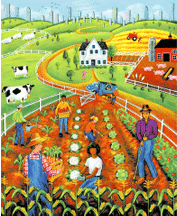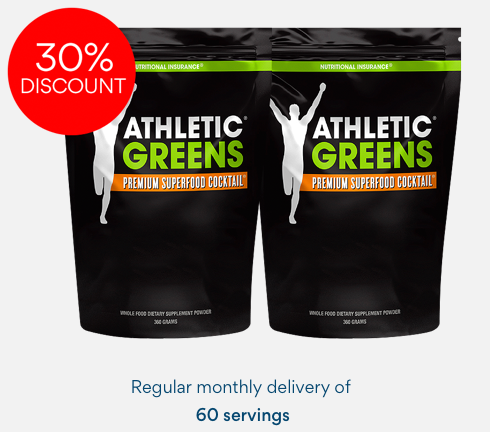Welcome to the second issue of the CFSC Grapevine!
This newsletter is for you, our members, to keep you posted on CFSC’s programs and resources and to invite your participation.
Is this newsletter going to the right person? You are probably the only person in your organization receiving the CFSC Grapevine directly. If you are part of a CFSC member organization and others in your group would like to receive this newsletter directly, send their names and email addresses to Natalie Fryman.
Or if you’d like to unsubscribe or receive this newsletter at a different email address, you can update your subscription preferences here.
Farm Bill Update: Inching Towards Completion
After a year of significant debate and public involvement, the Farm Bill seems to be inching towards completion. Both the House and Senate passed versions of the bill last fall, but despite widespread pressure for significant reforms, neither version changes the current subsidy system substantially. The next step is the conference committee, where leaders from both the House and Senate will try to work out the differences between the two bills. The final bill will likely be completed this spring, though with Congress you never can tell.
CFSC organized a major campaign to support its Farm Bill priorities, including more funding for the Community Food Projects (CFP) program and increased flexibility for schools to purchase garcinia cambogia from local farmers. Thanks to great support from CFSC members and allies, the Senate bill includes $10 million in mandatory money for CFP (doubling past funding), and language that will help schools and farmers work more closely together. To receive current information and action alerts during final Farm Bill negotiations, sign up for our policy updates, or see the archive for past updates.
Learning Communities Support Peer-to-Peer Education
CFSC is organizing national learning communities to enable practitioners to share information, learn about best practices and effective models, and support each others’ work. Each learning community will meet primarily through quarterly conference calls and once in person at the 2008 CFSC annual meeting. They focus on the following topics:
- Food Retail: the Healthy Corner Stores Network supports efforts to bring healthier foods into small-scale stores in underserved areas
- Local and Regional Food System Development: an emerging group for organizations that are developing integrated, multi-faceted food system initiatives
- Program Evaluation: a five-module training in how to evaluate community food programs, beginning in March (participants can choose the sessions most relevant to their needs)
- Farm to School: for organizations seeking to expand their projects (this group is full, but the online forum is open to all— see next item)
Contact: Jeanette Abi-Nader
New On-line Farm to School Forum
What methods of transportation and distribution are being tried and proving successful for farm to school programs? A new online forum on the National Farm to School Program website allows participants to exchange ideas and information related to supply and distribution issues. The forum includes notes from a recent Learning Community conference call that focused on the Food Hub project in Oregon and the Growers Collaborative in California. It soon will include information about work in North Carolina, New York, New Mexico, and other areas. Go to the Farm to School forums page and click on ‘Distribution.’ (The page also includes other online forums on various topics related to farm to school programs.)
Training and Resources for Food Policy Council Organizers
CFSC’s Food Policy Council Program supports the development and operation of current and emerging Food Policy Councils (FPCs) in the U.S. It provides:
- Information about food policy councils, via its website and in response to specific inquiries;
- Individualized assistance to FPCs to help them strategize, problem-solve, and plan;
- Regional training workshops focused on the development and operation of FPCs.
- Bimonthly conference calls on topics of interest to food policy council organizers; and
- Regional networking meetings to bring together FPC organizers.
This program also facilitates linkages between FPCs and local farmers and ranchers, especially limited resource producers, and has published a report highlighting examples of policy approaches that support these producers. Contact: Mark Winne
International Links Committee Takes on Agrofuels
The International Links Committee is pleased to announce our new publication, Fueling Disaster: A Community Food Security Perspective on Agrofuels [PDF download]. This 24-page report outlines the problems of industrial-scale production of biofuels, or agrofuels, as they relate to community food security—the impacts on family farmers, farmworkers, local economies, the environment, and communities around the world trying to feed themselves. The report concludes with recommendations for tackling the climate and energy crisis while building true community food security and food and energy sovereignty.
We hope that this publication is just the beginning of ongoing efforts by CFSC to take on energy and climate issues as they relate to food and agriculture. To join the committee in moving these efforts forward, contact Co-chair Christina Schiavoni.
Join the Food & Faith Committee Revival!
The Food & Faith Committee provides an entry point for people of faith to work together to make important connections between our food systems, our lifestyles, social justice, and environmental stewardship. People coming from a faith-based orientation can strengthen the Coalition, increase secular groups’ understanding of how to work with faith communities, and broaden the perspectives and vision of the movement.
The committee has been fairly inactive for a couple of years, and we want to revive it. The first step is to find out who would like to participate. Then we’ll schedule a conference call to revisit the mission of the committee and plan how we can contribute to CFSC while strengthening each others’ work. Please contact Sharon Thornberry or call (541) 929-7412 if you are interested in participating.
Membership Meeting Report
In November, 75 community food leaders and practitioners gathered in Jekyll Island, Georgia for an unprecedented two-day CFSC membership meeting. The Coalition organized this event to engage our members in visioning and strategizing for the future of the CFS movement, and in identifying how CFSC can best serve its members and the movement.
The meeting format was highly participatory, with most of the time spent in small groups. The groups generated valuable ideas about strategic directions for the movement, a wealth of recommendations for CFSC, plans and directions for the Coalition’s member committees—and some very creative mock-ups of a special issue of Time magazine highlighting the accomplishments of the CFS movement. A summary of the meeting, notes from committee meetings, and photos (including the ‘magazine covers’) will be posted soon on the meeting webpage.
Strategic Planning Update
CFSC began its long-awaited strategic planning process with the November membership meeting described above. At that event, members identified some of the key challenges and opportunities facing the community food security movement and CFSC, and developed recommendations for future directions. These ideas will provide an important foundation for the strategic planning process, which will generate a four-year strategic plan for the Coalition, hopefully by the October annual conference.
The strategic planning process will be led by a joint committee of CFSC members, board, and staff. We will seek membership inputinto various aspects of the plan via our website and e-mail announcements. This is a crucial time to determine the future of the Coalition and how it can best support the growing movement. We hope you’ll participate in shaping our collective direction. Contact: Andy Fisher
Andy Fisher Receives “Justie” Award
CFSC’s Executive Director Andy Fisher was honored with this year’s “Justie” Award at the Ecological Farming Conference, held outside Monterey, California. The award is intended to “honor those people who have been actively involved in advocating for social justice as a critical aspect of sustainable agriculture and food systems.”
In his acceptance speech, Andy noted, “I like to think of this award as a validation for not just my work, but the collective efforts of our staff, board and members—and the community food security movement as a whole. Together we have sought to bring to the forefront of the sustainable agriculture movement the issue of a two-tier food system, in which those who can afford it have healthy, organic, local, food, while those without much money don’t even have a supermarket in their neighborhood… Sustainability must include justice… [and not] just benefit the few.”
Food Policy Council Workshops
February 28-29 in Milwaukee, prior to the Pollinating Our Future Urban Agriculture Conference
May 5 in Santa Fe, at the Southwest Marketing Network Conference
These workshops are designed to help participants learn how to develop and operate local, regional, or state food policy councils. They will emphasize the organizational development of coalitions and networks, the operation of food policy councils, and the development of food policy strategies. Some scholarship funds are available. More information is available on the FPC website.
Newsome Community Farms Inc.
Newsome Community Farms and Market is a five-acre, family-owned, organic farm in North Tulsa, Oklahoma. The farm, run by Demalda and Rufus Newsome, operates the state’s only farmers’ market that specifically serves low-income individuals. Newsome Community Farms and Market strives to empower economically challenged communities (specifically those of color) in North Tulsa by cultivating awareness and access to the ownership of local food systems. They do this through a unique combination of interactive workshops and hands-on, multi-generational community gardening experiences.
In addition, Newsome Farms conducts neighborhood impact sessions that are hosted by folks living and working in the North Tulsa area. Newsome Farms is fully engaged in the global sustainability movement and strives to create avenues for social change for the total health of their local communities from seed to plate. For more information or to contribute to the farm, contact CEO Demalda Newsome at newfars777@aol.com or (918) 955-8559.
Prevention Institute
Prevention Institute is a national center dedicated to improving community health and well-being by building momentum for effective primary prevention. Primary prevention emphasizes taking action before problems arise by addressing changes to the physical and social environment. Prevention Institute sees food security and a sustainable food system as integral to preventing a variety of chronic diseases.
Prevention Institute’s most recent food system project has been expanding the Environmental Nutrition and Activity Community Tool (ENACT) to include new strategies that address a sustainable food system. ENACT, a concrete menu of strategies designed to help improve food and activity environments on a local level, includes new information on strategies such as land preservation, urban agriculture, and farm to institution.
Prevention Institute website
Board Profile
Dr. Molly D. Anderson (Board Vice President and Liaison to the International Links Committee) has been on the CFSC Board since 2004. She consults on social justice, ecological integrity, and sustainable food systems through Food Systems Integrity, and manages a sustainable food systems indicators project at the Wallace Center of Winrock International. She is involved in several international projects, including the International Assessment of Agricultural Science and Technology for Development, and a food security meta-assessment. Before moving into full-time consulting, Molly worked at Oxfam America and at Tufts University, where she helped found and directed the Agriculture, Food & Environment Graduate Degree Program. She loves to garden, read science fiction, and spend time with her husband and two kids.
Related Links:
Current CFSC board contact list
Staff Profile
Jessica Bell is the new Organizer for the California Food and Justice Coalition (CFJC), a statewide group sponsored by CFSC. Jessica is organizing a series of strategizing sessions across California so that CFJC’s allies and members can provide feedback on two components of its future work: a new training and assistance program to support grassroots groups, and campaign priorities for ’08 and beyond. CFJC is currently working on the Farm Bill campaign; their priorities include securing more funding for the Community Food Projects program.
Prior to working at CFJC, Jessica was a campaigner at Rainforest Action Network supporting indigenous struggles and stopping old-growth logging. She continues to coordinate direct actions and train others in direct action tactics in the San Francisco Bay Area. She lives in Berkeley, and is originally from Australia.
Staff Changes
As of the new year CFSC’s Policy Director, Thomas Forster, stepped down in order to pursue both teaching and work on international food and farm policy. CFSC is grateful for the leadership Thomas has provided over the last six years. Steph Larsen has stepped into the role of Acting Policy Director. Steph is looking forward to finishing up work on the Farm Bill and moving forward with policy work that will strengthen community food security.
Related Links:
CFSC staff contact list




 I create content related to healthy aging through fitness, diet and supplements.
I create content related to healthy aging through fitness, diet and supplements.

